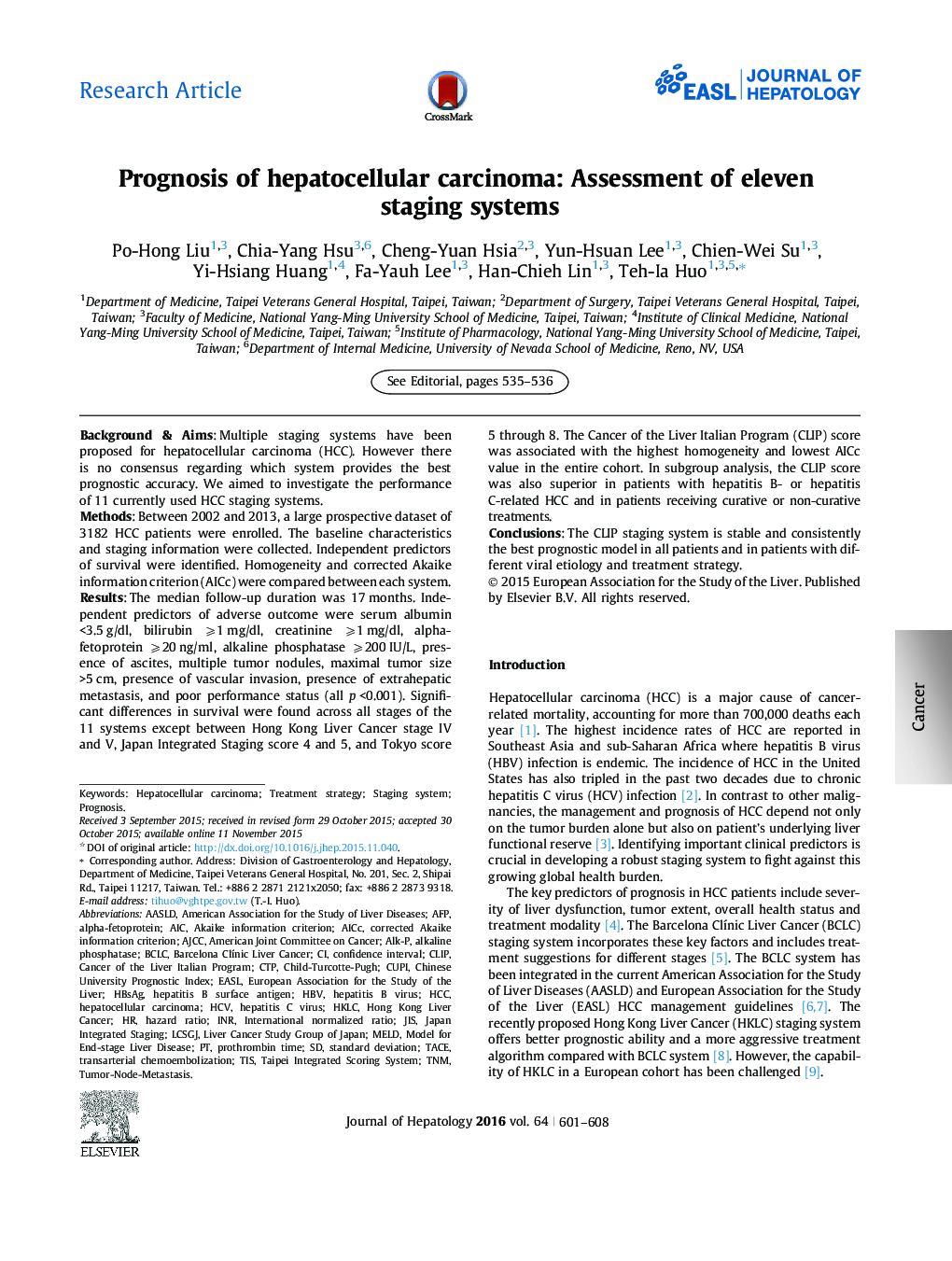| Article ID | Journal | Published Year | Pages | File Type |
|---|---|---|---|---|
| 6100977 | Journal of Hepatology | 2016 | 8 Pages |
Background & AimsMultiple staging systems have been proposed for hepatocellular carcinoma (HCC). However there is no consensus regarding which system provides the best prognostic accuracy. We aimed to investigate the performance of 11 currently used HCC staging systems.MethodsBetween 2002 and 2013, a large prospective dataset of 3182 HCC patients were enrolled. The baseline characteristics and staging information were collected. Independent predictors of survival were identified. Homogeneity and corrected Akaike information criterion (AICc) were compared between each system.ResultsThe median follow-up duration was 17 months. Independent predictors of adverse outcome were serum albumin <3.5 g/dl, bilirubin ⩾1 mg/dl, creatinine ⩾1 mg/dl, alpha-fetoprotein ⩾20 ng/ml, alkaline phosphatase ⩾200 IU/L, presence of ascites, multiple tumor nodules, maximal tumor size >5 cm, presence of vascular invasion, presence of extrahepatic metastasis, and poor performance status (all p <0.001). Significant differences in survival were found across all stages of the 11 systems except between Hong Kong Liver Cancer stage IV and V, Japan Integrated Staging score 4 and 5, and Tokyo score 5 through 8. The Cancer of the Liver Italian Program (CLIP) score was associated with the highest homogeneity and lowest AICc value in the entire cohort. In subgroup analysis, the CLIP score was also superior in patients with hepatitis B- or hepatitis C-related HCC and in patients receiving curative or non-curative treatments.ConclusionsThe CLIP staging system is stable and consistently the best prognostic model in all patients and in patients with different viral etiology and treatment strategy.
Graphical abstractDownload high-res image (131KB)Download full-size image
